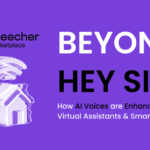Voice cloning technology, once a realm of science fiction, has now become a reality, capable of replicating voices with uncanny accuracy. While this innovation holds immense potential for entertainment, education, and accessibility, it also raises a host of ethical concerns.
As this technology becomes more sophisticated and accessible, the risks of misuse become increasingly apparent. From identity theft and financial fraud to the creation of deepfakes for malicious purposes, the potential for harm is significant. The question is, how can we harness the benefits of voice cloning while mitigating the risks?
My Proven Way to Make $100-$200 Per Day With 0 Investment – Watch THIS FREE Video to START >>

Privacy and Identity Theft
Voice cloning technology poses a serious threat to privacy and identity. With the ability to replicate a person’s voice with astonishing accuracy, malicious actors can impersonate individuals in a wide range of contexts.
One of the most concerning applications of voice cloning is in financial fraud. By impersonating a victim’s voice, attackers can deceive banks, customer service representatives, and other individuals into authorizing unauthorized transactions. This can lead to significant financial losses for victims.
Beyond financial fraud, voice cloning can also be used for social engineering attacks. Malicious actors can use cloned voices to manipulate victims into divulging sensitive information, such as passwords, account numbers, or personal details. This information can then be used to gain access to the victim’s accounts or commit other crimes.
Detecting and preventing voice cloning attacks can be challenging. Traditional security measures, such as passwords and security questions, may not be sufficient to protect against this type of threat. Additionally, the increasing sophistication of voice cloning technology makes it difficult to distinguish between genuine and cloned voices.
To address these challenges, organizations and individuals must adopt more advanced security measures. This may include using biometric authentication, such as fingerprint or facial recognition, in addition to voice authentication. Additionally, raising awareness about the risks of voice cloning and educating people about how to protect themselves is crucial
Misinformation and Deepfakes
Voice cloning technology can be used to create deepfakes, which are synthetic media that appear to be real but are actually fabricated. These deepfakes can be used to spread misinformation and propaganda, undermining trust in institutions and destabilizing societies.
One of the most concerning applications of voice cloning in deepfakes is in political manipulation. By creating deepfakes of politicians saying controversial or harmful things, malicious actors can sow discord and undermine public confidence in elected officials. This can have serious consequences for democratic processes and social cohesion.
Deepfakes can also be used to spread misinformation about current events, such as natural disasters, public health crises, or geopolitical conflicts. By fabricating false narratives, these deepfakes can mislead the public and hinder effective responses to these challenges.
Identifying and combating deepfakes is a complex task. Traditional methods of fact-checking and verification may not be sufficient to detect these sophisticated forgeries. Additionally, the rapid evolution of deepfake technology makes it difficult to keep pace with new techniques.
To address these challenges, organizations and individuals must develop more advanced tools and techniques for detecting deepfakes. This may include using artificial intelligence and machine learning to identify inconsistencies and anomalies in media content. Additionally, raising awareness about the dangers of deepfakes and educating people about how to critically evaluate information is essential.
My Proven Way to Make $100-$200 Per Day With 0 Investment – Watch THIS FREE Video to START >>
Intellectual Property and Copyright
Voice cloning technology raises significant questions about intellectual property rights and copyright. The use of a person’s voice without their consent can infringe on their rights and have serious legal consequences.
One of the primary concerns is the unauthorized use of voices in advertising, entertainment, and other commercial contexts. By cloning a person’s voice, companies can create synthetic media that appears to be the person’s genuine voice, even if they have never consented to its use. This can lead to misrepresentation, confusion, and damage to the individual’s reputation.
Protecting intellectual property rights in the age of voice cloning presents a complex legal and ethical challenge. Traditional copyright laws may not be sufficient to address the unique issues raised by this technology. Additionally, the rapid evolution of voice cloning technology makes it difficult to establish clear legal frameworks.
To address these challenges, it is necessary to develop new laws and regulations that specifically address the use of voice cloning technology. These laws should provide clear guidelines for the use of voices in commercial contexts and establish penalties for unauthorized use. Additionally, it is important to raise awareness among individuals and organizations about the importance of protecting intellectual property rights in the digital age.
Consent and Autonomy
The use of voice cloning technology without explicit consent raises serious ethical concerns. It can violate individuals’ privacy, undermine their autonomy, and create opportunities for exploitation.
One of the most significant ethical implications of voice cloning is the potential for exploitation and abuse of individuals, especially those who may be vulnerable or marginalized. By cloning the voices of public figures or celebrities, malicious actors can create deepfakes that are used to spread false information or harass these individuals. This can have serious consequences for their reputations and personal lives.
Additionally, voice cloning can be used to exploit individuals who may be unaware of the technology or unable to give informed consent. This could include children, the elderly, or individuals with disabilities. By cloning their voices, malicious actors can manipulate these individuals into revealing sensitive information or engaging in harmful activities.
To protect individual autonomy and rights, clear guidelines and regulations are needed to govern the use of voice cloning technology. These regulations should require explicit consent for the use of a person’s voice and establish penalties for unauthorized use. Additionally, it is important to raise awareness about the risks of voice cloning and educate individuals about how to protect themselves from exploitation.
Regulation and Governance
Regulating voice cloning technology presents significant challenges due to the rapid pace of technological advancement and the global nature of the internet. However, the potential risks associated with this technology necessitate the development of effective regulatory frameworks.
Government regulation can offer several benefits, including protecting individuals’ rights, preventing harm, and promoting responsible innovation. By establishing clear guidelines and penalties for the misuse of voice cloning, governments can deter malicious actors and create a safer online environment.
However, government regulation can also have drawbacks. Overregulation can stifle innovation and create barriers to entry for legitimate businesses. Additionally, enforcing regulations in a global context can be challenging, as technology often outpaces the ability of governments to keep up.
To address the ethical concerns raised by voice cloning technology, several solutions and recommendations can be considered. These include:
- International cooperation: Governments should work together to develop international standards and best practices for the use of voice cloning technology.
- Industry self-regulation: Technology companies should develop voluntary codes of conduct and ethical guidelines to promote responsible innovation.
- Education and awareness: Raising awareness about the risks and benefits of voice cloning technology among individuals and organizations is essential.
- Technological advancements: Investing in research and development to create tools and techniques for detecting and preventing the misuse of voice cloning technology.
- Legal frameworks: Developing clear legal frameworks that address the specific challenges posed by voice cloning, such as copyright infringement, privacy violations, and identity theft.
By adopting a comprehensive approach that combines government regulation, industry self-regulation, education, and technological advancements, it is possible to mitigate the risks associated with voice cloning technology and ensure its responsible development and use.
My Proven Way to Make $100-$200 Per Day With 0 Investment – Watch THIS FREE Video to START >>
Conclusion
Voice cloning technology, while offering exciting possibilities, also presents significant ethical challenges. From privacy violations and identity theft to the spread of misinformation and deepfakes, the potential for harm is substantial.
To ensure that voice cloning technology is used responsibly, it is crucial to address these concerns through a combination of government regulation, industry self-regulation, education, and technological advancements. By working together, we can harness the benefits of this technology while mitigating its risks and protecting individuals’ rights.









